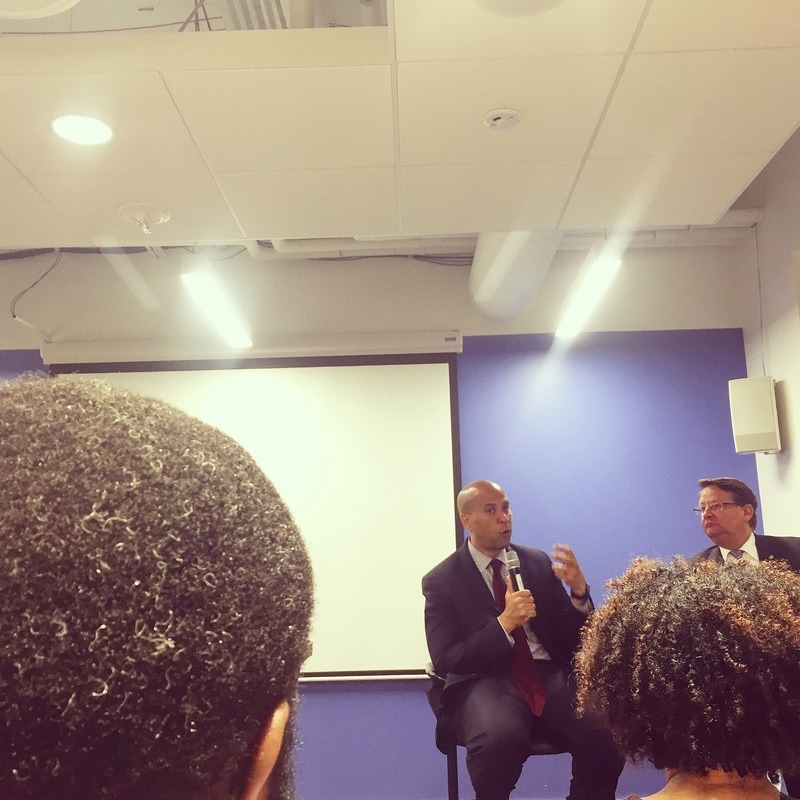Coming to Detroit, I did not expect to have an epiphany on the matter, but I was hoping the idea of “social entrepreneurship" would start to clarify itself. After two weeks at TechTown, I certainly do not have a clear-cut definition of what it means to be a social entrepreneur, but I have begun to find answers in the unlikeliest of places. Though I have been exposed to the incredible strides being made by social ventures at TechTown in the fields of medicine, technology, and even retail, I have learned most about what social entrepreneurship means to me from three politicians and the Motown Museum.
This past week, TechTown received a visit from Senators Debbie Stabenow, Gary Peters, and Cory Booker. The three Senators, along with a panel of Detroit entrepreneurs, addressed the changing American economic climate and how best to meet the concerns of small-business owners. Throughout the course of the event, the group discussed apprentice-based learning, automated manufacturing, loan acquisition, and caribbean food. The three Senators listened attentively to the issues facing the business-owners, actively articulating potential legislative solutions and aids. The exchange between the public and private sector was alive before my eyes on the first floor of TechTown, and I began to understand social entrepreneurship as an ecosystem of actions, all of which could be, if handled properly, maintained to promote broad and equitable economic growth in a city like Detroit, or Durham. Ventures could have clearly-stated social missions, but they could also serve the simple mission of community empowerment and ownership.
In this sense, many projects fall under the umbrella of social entrepreneurship. In Detroit, nearly everything is touched by a pervasive spirit of this sort of entrepreneurialism meant to uplift and embody a community. Even while walking through the Motown Museum, I could not help but think of Berry Gordy’s brainchild as the ultimate testament to Detroit innovation. Here was a businessman, driven by a creative and lucrative concept, who ingeniously swept the globe with chart-topping hits. And yet, while Motown was a profit-driven machine, it used its platform to promote the values of peace, love, hope, optimism, and equality, giving a little piece of Detroit to ears everywhere. Its sounds serve a purpose larger than money, even if money was its original motive.
Social entrepreneurship is taking shape for me as a private sector translation of grassroots democracy. Through socially motivated private action, thoughtfully coordinated with creative public policy, citizens can reach sustainable economic independence on their own terms, and demand that their economy fit with their moral conceptions of themselves. I am not sure if my definition matches up with those of textbooks or professors, but even if it is peculiar, it is definitely helping to stabilize the buzz words.

 RSS Feed
RSS Feed
